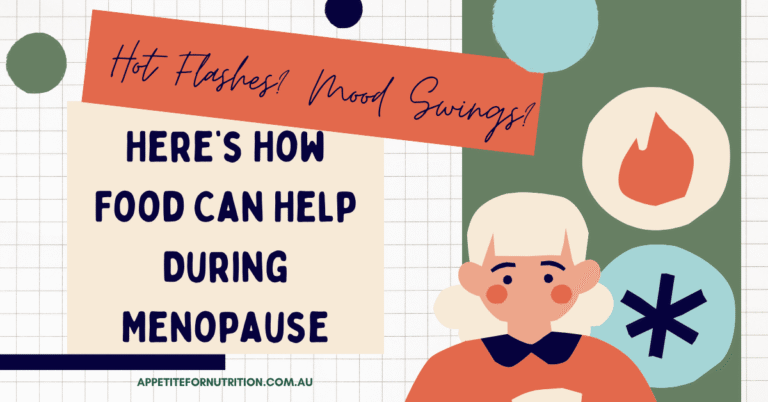
Top Nutrition Tips for Menopause: Embrace Health and Wellness
Menopause marks a significant physiological transition in a woman’s life, accompanied by hormonal changes that can impact overall health. Optimal nutrition plays a crucial role in managing symptoms and supporting well-being during this phase. Here’s a deeper look into each recommendation and why it’s beneficial:
1. Prioritize Calcium and Vitamin D for Bone Health
During menopause, declining estrogen levels can lead to accelerated bone loss, increasing the risk of osteoporosis and fractures. Calcium and vitamin D are essential for maintaining strong bones and reducing this risk.
Calcium: Found abundantly in dairy products like milk, yogurt, and cheese, as well as in plant-based sources such as almonds, tofu, and leafy greens (like kale and spinach). Calcium supports bone density and muscle function.
Vitamin D: Helps the body absorb calcium effectively. Sunlight exposure stimulates vitamin D production in the skin, while dietary sources include fatty fish (salmon, mackerel), fortified dairy products, and egg yolks.
2. Focus on Plant-Based Proteins for Muscle Health
As women age, muscle mass tends to decrease, leading to reduced strength and metabolism. Adequate protein intake supports muscle maintenance and repair.
Plant-Based Proteins: While animal proteins are rich in complete protein, plant-based proteins offer additional benefits. They provide fiber, antioxidants, and phytonutrients that support overall health and reduce inflammation.
Nutrient Density: Plant-based proteins such as beans, lentils, quinoa, tofu, and nuts/seeds are nutrient-dense and promote satiety without the saturated fats and cholesterol found in many animal products.
Heart Health: Plant-based proteins are generally lower in saturated fats and higher in unsaturated fats, which can help maintain healthy cholesterol levels and reduce the risk of heart disease.
3. Incorporate Healthy Fats for Heart Health
Heart disease risk can increase after menopause due to changes in lipid profiles and hormonal shifts. Healthy fats support heart health and overall well-being.
Omega-3 Fatty Acids: Found in flaxseeds, chia seeds, walnuts, and fatty fish (like salmon and mackerel), omega-3s reduce inflammation, support brain function, and help lower triglyceride levels.
Monounsaturated Fats: Olive oil, avocados, and nuts (such as almonds and pistachios) are sources of monounsaturated fats that improve cholesterol levels and may reduce the risk of heart disease.
4. Boost Fiber Intake for Digestive Health and Weight Management
Menopause can affect digestion and metabolism. Fiber-rich foods aid digestion, promote satiety, and regulate blood sugar levels.
- Sources of Fiber: Vegetables (especially leafy greens and cruciferous veggies), fruits, whole grains (like oats and brown rice), and legumes (such as beans and lentils) provide soluble and insoluble fiber. They support gut health, prevent constipation, and aid in weight management.
5. Stay Hydrated to Support Overall Health
Dehydration can exacerbate symptoms like hot flashes and contribute to dry skin and urinary tract issues common during menopause.
- Water and Hydration: Drinking adequate water throughout the day (at least 8 glasses) and consuming water-rich foods (like cucumbers, watermelon, and oranges) maintain hydration levels. This supports skin health, kidney function, and overall well-being.
6. Reduce Refined Sugars and Carbohydrates for Stable Blood Sugar
Fluctuating hormone levels during menopause can impact insulin sensitivity and lead to blood sugar imbalances. Limiting refined sugars and carbs helps maintain stable energy levels and weight.
Whole Grains: Opt for whole grains like quinoa, whole wheat, and barley, which provide sustained energy and fiber without causing rapid spikes in blood sugar.
Natural Sweeteners: Choose natural sweeteners like honey, maple syrup, or fruits, which provide sweetness along with vitamins, minerals, and fiber.
7. Include Phytoestrogens for Hormonal Balance
Phytoestrogens are plant compounds that mimic estrogen in the body, potentially easing menopausal symptoms like hot flashes and mood swings.
- Sources of Phytoestrogens: Soybeans, tofu, tempeh, flaxseeds, sesame seeds, and legumes contain phytoestrogens. They may help balance hormone levels and alleviate symptoms associated with estrogen decline.
8. Practice Mindful Eating for Better Digestion and Weight Management
Mindful eating promotes awareness of hunger and fullness cues, preventing overeating and supporting digestive health.
- Eating Habits: Slow down and savor each bite, chewing thoroughly. Avoid distractions like television or smartphones during meals to focus on the food and your body’s signals of hunger and satiety.
Conclusion
Navigating menopause can be challenging, but adopting these nutrition tips can help manage symptoms and support overall health and well-being. By prioritizing calcium and vitamin D for bone health, focusing on plant-based proteins, incorporating healthy fats, boosting fiber intake, staying hydrated, reducing refined sugars and carbs, including phytoestrogens, and practicing mindful eating, you can embrace this new phase of life with vitality and resilience. Make these dietary adjustments part of your lifestyle to optimize health during menopause and beyond.
This blog was last updated October 2025.
Frequency Asked Questions
Find quick answers to common questions
Our team of NDIS-registered dietitians helps clients make practical, evidence-based food decisions that fit their goals, lifestyle, and budget.
Focus on a balanced diet rich in calcium, vitamin D, plant-based proteins, healthy fats, and fibre. These nutrients support bone strength, heart health, digestion, and energy as hormones fluctuate.
Yes. Foods containing phytoestrogens—such as soy, flaxseeds, sesame seeds, and legumes—may help balance hormones and reduce hot flashes and mood swings in some women.
Eat regular, balanced meals that include protein and fibre, reduce refined sugars, and practice mindful eating. Staying active and well hydrated also supports metabolism and healthy weight management.
Supplements for calcium, vitamin D, or omega-3s may be useful if your intake or sunlight exposure is low, but it’s best to check with an Accredited Practising Dietitian or GP before starting any supplements.
A dietitian can create a personalised nutrition plan to manage symptoms, maintain bone and heart health, and help you feel your best. They provide evidence-based guidance on food choices, meal planning, and lifestyle strategies tailored to your needs.
(Learn more or book a consultation with an Appetite for Nutrition dietitian to get started.)



